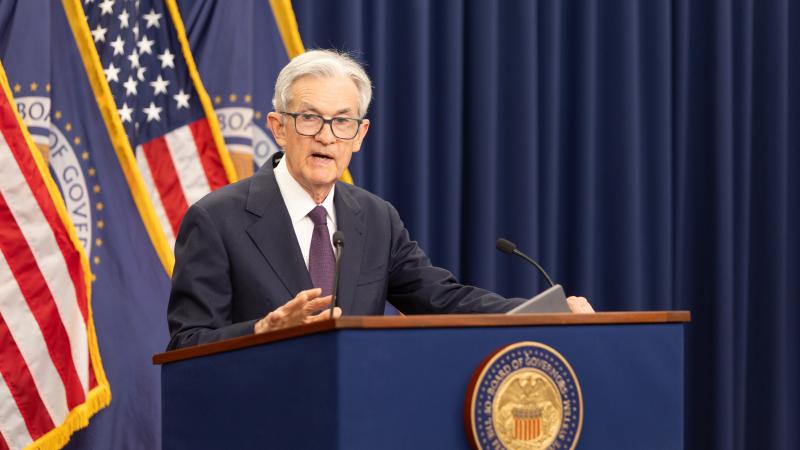Feds downplay stroke risk from COVID-flu vaccine combo discovered by their own researchers
Head of vaccine safety office says he won't get the two shots together. Spike protein "could represent the key to understanding the molecular pathway of the heart conduction abnormality," Italian paper says.
The CDC recommends getting a flu and COVID-19 vaccines at the same time, deeming this "coadministration" not only convenient but "safe." Its own researchers won't go that far, and neither will the FDA's, including the head of the agency's vaccine safety office.
Both agencies have now found a small risk of stroke in older people who get the two vaccines on the same day, part of increasing global interest in severe adverse events (SAEs) in older populations at naturally higher risk from SARS-CoV-2.
American and Italian researchers each published their findings on unexpected heart problems following COVID vaccination in populations not at risk for myocarditis and pericarditis, the SAEs most associated with young men, though both papers acknowledge the limitations of the data.
The two agencies' findings were laid out in an Oct. 25 presentation to the Centers for Disease Control and Prevention's Advisory Committee on Immunization Practices by Tom Shimabukuro, director of the agency's Immunization Safety Office. Consistent with federal public health messaging, he repeatedly played down the findings.
The CDC's Vaccine Safety Datalink (VSD) real-time monitoring system "detected an elevated risk" of ischemic stroke in people 65 and older who received same-day Pfizer COVID and "high-dose" or "adjuvanted" influenza vaccines earlier this year, he said.
The agency issued a since-deleted press release at the time that acknowledged the Pfizer stroke safety signal – and also played down the chance it was a "true clinical risk" – but did not mention the elevated risk when taken concurrently with a flu vaccine.
Using Medicare claims data, Food and Drug Administration researchers then found a greater risk of "non-hemorrhagic stroke" (NHS) 22-42 days after the Pfizer-flu vaccine combination and "transient ischemic attack" (TIA) 1-21 days after the Moderna-flu combo in ages 65 and up, also limited to high-dose or adjuvanted flu vaccines.
The increase from the Pfizer-flu combo was 3.13 NHS cases per 100,000 doses, and the Moderna-flu combination, 3.33 TIA cases. The study analyzed the bivalent versions of the mRNA vaccines, which only require a single dose
"Available data do not provide clear and consistent evidence of a safety problem for ischemic stroke with bivalent mRNA COVID-19 vaccines" alone or with flu vaccines, Shimabukuro concluded. "Any real or theoretical risks of vaccine adverse events need to be placed in the context of the known benefits" of both vaccines against the "potentially serious complications" of infection.
"The absolute risk is minuscule" and "trivial in comparison to the risk for people over 85 of dying from Covid," Cleveland Clinic cardiologist Steve Nissen told CNN.
It wasn't small enough for Peter Marks, director of the FDA's Center for Biologics Evaluation and Research.
He said in a Sept. 13 stakeholder call that he would "probably" get his updated COVID vaccine that weekend and his flu vaccine around Oct. 1, in line with "general guidance" of two-week spacing to "minimize the chance of interactions and minimize confusing side effects from one with another."
This summer, Italian researchers reported "a case series of patients affected by cardiac arrhythmias post-mRNA vaccine from our clinical practice and the literature" in the International Journal of Molecular Sciences, published by Swiss open-access publisher MDPI.
As is common for peer-reviewed COVID research, the paper goes out of its way to praise the vaccines. They have "significantly reduced disease-related hospitalizations and mortality, protecting the healthcare and economic systems from an imminent crash," and "the risk–benefit ratio is clearly in favor of vaccination."
But the researchers' review of "official vigilance databases" – including the U.S. Vaccine Adverse Events Reporting System (VAERS) and Europe's EudraVigilance – suggests that heart-rhythm disorders "are not uncommon" after mRNA vaccination and even more common than myopericarditis, or simultaneous inflammation of heart muscle and pericardium, observed primarily in young men.
They didn't find similar problems associated with other vaccines, speculating that "the spike protein – whether from COVID or vaccine – could represent the key to understanding the molecular pathway of the heart conduction abnormality.
"Binding with high affinity to ACE2 [Angiotensin-converting enzyme 2] could potentially result in an ACE imbalance, thus promoting cardiac complications."
Cleveland Clinic and Mayo Clinic researchers sought to determine the frequency of atrial fibrillation after COVID vaccination based on reports to VAERS, which unlike VSD is not actively monitored, in a summer 2022 study published in Springer Nature's Journal of Interventional Cardiac Electrophysiology.
They found about 2,600 reports among 523 million doses of both two-dose monovalent mRNA and one-dose Johnson & Johnson as of Jan. 7, 2022, for an incidence rate of around 5 per million doses. There was little difference between the different vaccine platforms.
Afib, as it's known, was slightly more common in males and the "vast majority" happened in age 40 and older. The rate was startlingly higher than for influenza vaccination, however, with only 12 reports out of 194 million doses.
"Given that AF is relatively common among those hospitalized with COVID-19, with a prevalence of around 10%, the low incidence of AF in patients receiving vaccines for COVID-19 is reassuring," they wrote.
"There are many clear safety signals for the Covid vaccine," from cardiac arrhythmia to sudden death, "which historically would have gotten the product immediately withdrawn from the market," Jane Orient, executive director of the Association of American Physicians and Surgeons, told Just the News when shown the research.
"When you give two things at once, you can never tell which one caused an adverse effect, and often the combo is worse," she wrote in an email, noting that the "annual flu shot is not tested – it is just assumed to be safe."
An anonymous cardiologist on X who frequently faults the rigor of federal COVID pronouncements told Just the News not to put much stock in the Italian paper.
"It’s a collection of case reports & the like glued together with some pseudo-scientific hand-waving," Angry Cardiologist said.
As for the American study, "I would caution [against] any causality" because atrial fibrillation "is common, and common things happening after a vaccination is hard to make sense of," Angry Cardiologist wrote in a direct message. "This is in contrast to myocarditis which is basically unheard of outside of infection or serious inflammatory diseases."
The Facts Inside Our Reporter's Notebook
Videos
Links
- "coadministration" not only convenient but "safe
- Oct. 25 presentation
- same-day Pfizer COVID and "high-dose" or "adjuvanted" influenza vaccines
- since-deleted press release
- played down the chance it was a "true clinical risk"
- FDA researchers then found a greater risk
- Cleveland Clinic cardiologist Steve Nissen told CNN
- Sept. 13 stakeholder call
- International Journal of Molecular Sciences
- Journal of Interventional Cardiac Electrophysiology
- Jane Orient
- Angry Cardiologist said















